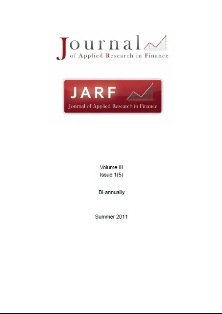EFFECTS OF FDI IN THE EUROPEAN TRANSITION ECONOMIES
EFFECTS OF FDI IN THE EUROPEAN TRANSITION ECONOMIES
Author(s): Júlia Ďurčová, Rajmund MirdalaSubject(s): Economy
Published by: Reprograph
Keywords: foreign direct investments; economic growth; inflation; unemployment; trade balance; VAR; Cholesky decomposition; impulse-response function
Summary/Abstract: The Foreign Direct Investments (FDI) formed one of the most important pillars of economic transformation of the so called former Eastern Bloc countries. In general, many countries considered it to be the only solution for recovery of industry and trade in respect of ‘mismanaged’ domestic enterprises. Such opinion shall be confirmed or disconfirmed on long-term basis. However, certain conclusions may be drawn at present. The following analysis aims at analysing the impact of a permanent shock in FDI on selected economic variables in the ten European Union member countries (Poland, Hungary, Czech Republic, Slovakia, Slovenia, Romania, Bulgaria, Estonia, Latvia and Lithuania). The analysis shall be done through the VAR method where we shall use the approach of the recursive Cholesky decomposition of the variance-covariance matrix of reduced form VAR residuals. We expect that the results of the analysis shall enable us to determine the shock impact on the development of the selected variables. The data necessary for the analysis shall be taken from the IMF statistics collected in the time period 2001-2009.
Journal: Journal of Applied Research in Finance (JARF)
- Issue Year: III/2011
- Issue No: 05
- Page Range: 27-37
- Page Count: 11
- Language: English

